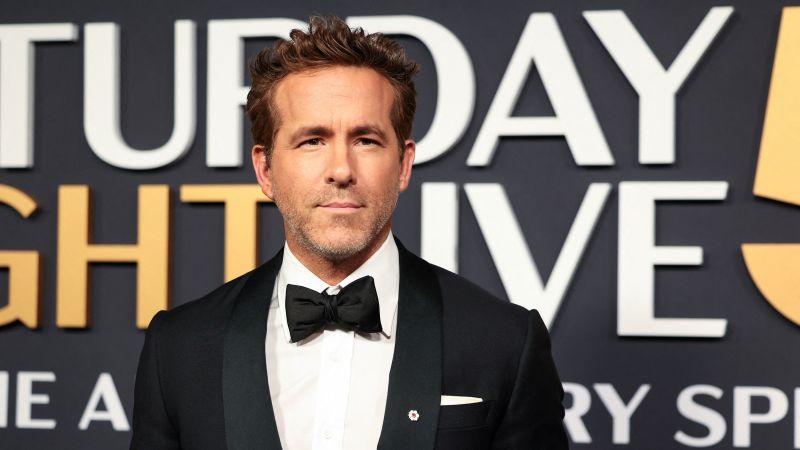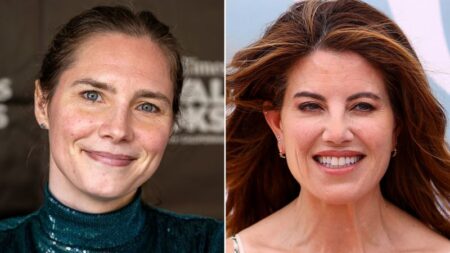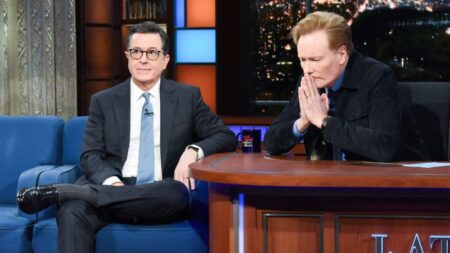In recent news, Canadian actor Ryan Reynolds has filed a motion requesting the dismissal of his name from a high-stakes defamation lawsuit brought by filmmaker Justin Baldoni. The case, which amounts to a staggering $400 million, centers around allegations that Reynolds characterized Baldoni as a “predator.” Reynolds’ legal representatives argue that Baldoni’s claims lack credence, suggesting that they simply stem from “hurt feelings” rather than legal grounds.
The motion was officially submitted on Tuesday and has since been made available to the public through news outlets, including CNN. It primarily revolves around two incidents in which Reynolds allegedly referred to Baldoni in derogatory terms. Notably, the document contends that Baldoni has failed to demonstrate that Reynolds did not genuinely believe in his statements. The text from Reynolds’ filing articulates that he has a “constitutional right to express his opinion,” asserting that his belief about Baldoni’s conduct justifies his use of the term “predator.”
Moreover, Reynolds’ legal team elaborated, emphasizing that Baldoni’s complaints appear to be motivated by a personal reaction to a fictional character from Reynolds’ recent film, “Deadpool & Wolverine.” They dismissed Baldoni’s strong sentiments regarding the character Nicepool as irrelevant to the legal framework, framing it instead as simply his assertion of “hurt feelings.” This framing indicates that Reynolds is seeking to separate himself from the deeper intricacies of Baldoni’s grievances involving his wife, Blake Lively.
In the recounting of the ongoing legal entanglement, it’s pertinent to highlight that Lively has initiated her own lawsuit against Baldoni, which involves claims of sexual harassment and subsequent retaliatory actions. Reynolds’ filing asserts that his involvement in these legal matters is merely that of a supportive husband, not a participant in the alleged wrongdoings.
The situation escalates further when it’s revealed that Baldoni included Reynolds in his lawsuit primarily because of words spoken by Steve Sarowitz, a producer associated with Baldoni and a defendant in Lively’s lawsuit. Sarowitz purportedly threatened to spend considerable sums of money to “ruin” the lives of Lively and Reynolds. This backdrop adds a layer of complexity to the situation, incorporating themes of vengeance and professional rivalry that may underscore the lawsuit.
Within Baldoni’s allegations, the filmmaker has accused Reynolds of meddling in the creative decisions related to his project, “It Ends With Us,” claiming that Reynolds facilitated Lively’s purported attempts to commandeer the film’s direction. Baldoni has suggested that both Lively and Reynolds engaged in unauthorized alterations to the script, actions they assert were made without his consent—raises serious questions about professional ethics in their collaborations.
Baldoni’s allegations extend beyond mere professional concerns; he has levied claims that Reynolds displayed aggressive behavior, including public reprimands and personal insults within the confines of their shared professional space. Such accusations, if they hold water, could dramatically alter the public’s perception of Reynolds, who is widely regarded as a charming figure in Hollywood.
Significantly, the legal discourse has also touched on the dynamics within WME, the talent agency representing both Lively and Reynolds, which recently severed ties with Baldoni after Lively’s original harassment complaint. Even as Reynolds’ advocates assert that he retains the freedom to express his views about Baldoni, the trial’s developments continue to unravel a complicated narrative filled with emotional, personal, and professional stakes.
Reynolds’ attorneys, Mike Gottlieb and Esra Hudson, emphasized their standpoint to CNN, reinforcing their belief that the lawsuit is fundamentally flawed. They insist Reynolds’ statements about Baldoni were merely opinions protected under the First Amendment, especially in light of the backlash they have received over the past year, wherein they have been labeled “bullies” by various groups.
As the legal confrontation progresses, both parties have indicated they do not intend to yield to settlement, with the trial currently slated to commence in March 2026. If Reynolds’ motion to have the case against him dismissed fails, Hollywood could witness an unprecedented moment where one of its most notable stars is called upon to testify in a matter ripe with both public interest and potential industry ramifications.
Baldoni has been embroiled in controversy since last December, with Lively’s accusations concerning sexual misconduct and retaliation. They subsequently filed an amended complaint to include other allegations from additional women regarding Baldoni’s conduct. Bryan Freedman, representing Baldoni and his associates, has issued a strong denial of the claims, characterizing them as fabricated and an attempt to malign Baldoni’s character publicly.
Overall, the intertwining of personal relations with professional integrity creates a swirling narrative of scandal, opinion, and the complexity of artistic collaboration, all set against the backdrop of the glitzy yet tumultuous world of Hollywood.











